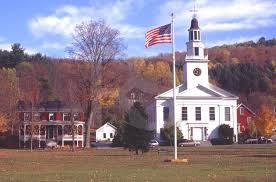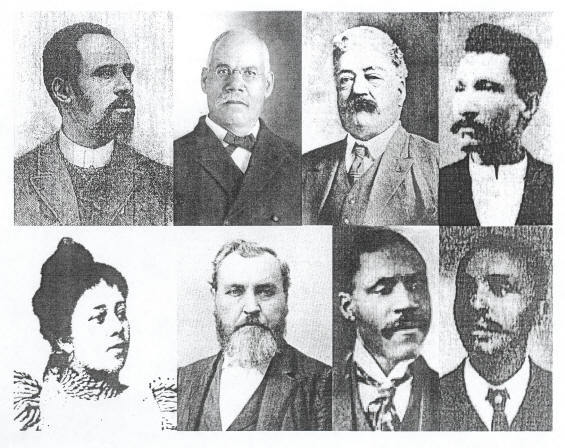There is a story in which a Vermont farmer is visited by another sodbuster and his dog, from New Hampshire across the Connecticut River. They sit on the porch over looking one of the state's many small lakes. The visitor throws a stick far out on the water and says "fetch".
The dog umps up, runs across the surface of the lake, grabs the stick and brings it back to its master, returning with its paws barely wet. The New Hampshire farmer says to his host, "So, whadda you think of that?" To which the Vermonter replies, "Wouldn't have me a dog that can't swim".
This story encapsulates the putative stereotype of old Vermonters -- rural, practical and singularly short on imagination. Among other things Vermont is the least urbanized state and one of the least diverse (when I lived there 30 years ago the largest ethnic minority was French-Canadians, "Canucks"). Part of its eccentricity may come from fifteen years as an independent republic (1776-1791, longer than the life of the better known Republic of Texas, 1836-1845). During this brief period of independence, the Vermont legislature abolished slavery (no part of the U.S. did so until several years later).
How Vermont was settled determined its political culture. Large land grants from the British crown with tenant farmers characterized New Hampshire (and New York). In the early 18th century settlers crossed the Connecticut River from New Hampshire to take unauthorized possession of land in what is now named Vermont.
The opposition to slavery by Vermonters manifested itself during the US Civil War, when close to 20 percent of adult males served in the Union army. The over 5000 killed was the highest per capita of any state (including the secessionist ones). Much like English villages with their WWI memorials, almost all Vermont towns and communities have their Civil War memorials.
Because of the Democratic Party's century-long strong base in the former states of the Confederacy and acquiescence to segregation (the erstwhile "solid South"), after the Civil War the legacy of opposition to slavery kept Vermont firmly Republican in very presidential election from 1856 through 1988 except one (Lyndon Johnson's landside win in 1964).
Despite being born in Brooklyn, Bernie Sanders fits easily into the Vermont radical tradition. One of his main issues, reform of Wall Street, reflects not only his political outlook but also the finance-unfriendly regulatory environment in Vermont. Believe it or not, a complete list of Vermont financial institutions includes not one national or international bank. This was once common across states - banks could not have more than one branch when I grew up in Texas -- but now almost unknown.
The Vermont culture of the common citizen against the power of finance, especially strong among farmers, once could be found across the United States, even in states we now consider bastions of reaction, such as my home state of Texas (where in 1892 a radical candidate for the Peoples Party won 25% of the votes for governor). Except in Vermont this "little guy against big money" tradition has almost disappeared.
Less in the Vermont tradition is Sander's strong support for trade unions. While alien to the Vermont small farmer tradition, over the last several decades unions have to a limited extent established themselves as a political force in Vermont (about 12 percent of employees in a state that is only 39 percent urban, lowest ratio in the United States except for nearby Maine at 38%).
After New Hampshire his challenge is to extend the anti-establishment message beyond upper New England. February will continue to bring inclusive contests in rather small states, Nevada on the 20th (in which he might win or come close) and South Carolina on the 27th (which he will lose).
Then come the block-busters, beginning 1 March when eleven states hold primaries (including delegate-heavy ones, Virginia and Texas). During the rest of March 17 more states weigh in, the largest being Florida, Michigan and Ohio (all with well over 100 delegates. Come the 1st of April (by chance my birthday) primaries will have decided over 50 percent of delegates.
In addition to these, a large share of the so-called super delegates will have declared themselves. These number 713 (about 16 percent of the total) and include members of Congress, governors and party officials. At the moment 359 have committed to Hillary Clinton and eight to Bernie Sanders. These delegates are notoriously prone to jumping onto the winning bandwagon, so their current commitment should be treated as notional at most.
The keys for the senator from Vermont will be the closely linked, money and name recognition. The excellent Vermont cartoonist Jeff Danzinger has a cartoon in which Sanders campaigns in a South Carolina diner and one local asks another, "did he say Colonel Sanders?"
Should Sanders overcome the name recognition gap across the South and Southwest, the central question is whether his class-focused political message can realize the long term dream of American populist progressives to unite poor whites and poor blacks in support of radical reform.



